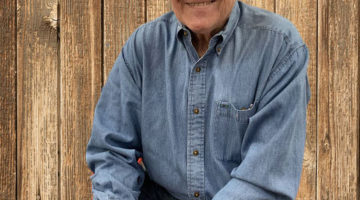2011 Movie Recap: Part 4of 5: A Year in Nostalgia
Check out: 2011Recap Part 1 Fantasy, Recap Part 2 Women , Part 3: Fatherhood
Over two consecutive long weekends this holiday season, I escorted my children to the movies, and in doing so – and of more significance perhaps – I was covertly able to revisit my childhood.
I made sure not to ruin the experience for my charges by waxing nostalgic about what the movies we saw meant to me. I abstained from edifying their vacation by trying to put the outing into any historical, sociological context. At the same time, by remaining silent for fear of becoming that dad, I knew they would be unable to appreciate how wonderful and momentous it was to be seeing a new, quality Muppets movie; how fortunate they were to witness Steven Spielberg release a stirring serial adventure for the next generation.
 The truth is, the Muppets were always in our home. Since the time the kids were old enough to grasp a toy, we had Miss Piggy, Gonzo, Kermit, and Fozzie dolls in their hands. (Once, on a trip to San Francisco we were thrilled to find a box set of The Electric Mayhem – Scooter, we could never locate).We tried to push The Muppet Show on them, Muppet Babies cartoons, the Muppet movies we deemed appropriate (no Muppets Christmas Carol for religious reasons, and Muppets From Space only in small doses for aesthetic ones). The funny thing was, my wife and I did not purchase any of these DVDs (or VHS tapes) – we owned them already. They were in our collection from either childhood (i.e. pilfered from our parents’ homes) or bought together when we were dating or newlyweds. I recall early on in our relationship, it was in my wife’s parents’ home, in the basement when she played for me an old tape upon which her father had recorded dozens of The Muppet Show episodes – in need of severe tracking adjustments – that I professed my love to her for the first time.
The truth is, the Muppets were always in our home. Since the time the kids were old enough to grasp a toy, we had Miss Piggy, Gonzo, Kermit, and Fozzie dolls in their hands. (Once, on a trip to San Francisco we were thrilled to find a box set of The Electric Mayhem – Scooter, we could never locate).We tried to push The Muppet Show on them, Muppet Babies cartoons, the Muppet movies we deemed appropriate (no Muppets Christmas Carol for religious reasons, and Muppets From Space only in small doses for aesthetic ones). The funny thing was, my wife and I did not purchase any of these DVDs (or VHS tapes) – we owned them already. They were in our collection from either childhood (i.e. pilfered from our parents’ homes) or bought together when we were dating or newlyweds. I recall early on in our relationship, it was in my wife’s parents’ home, in the basement when she played for me an old tape upon which her father had recorded dozens of The Muppet Show episodes – in need of severe tracking adjustments – that I professed my love to her for the first time.As for the kids that resulted from that romantic scene, they all enjoyed Jim Henson’s floppity brood for a time – there was even a short yet intense Fraggle Rock phase – but eventually they resisted our passion and drifted toward whatever was popular at the time (Dora the Explorer, Diego, Yo Gabba Gabba, and now whatever tweenage smut Nickelodean and Disney XD are peddling).
In James (The Flight of the Conchords) Bobin’s feature debut, classically titled The Muppets, the Muppets are viewed by the world in a way similar to that found in my home. While there is a lingering interest in that zany mob of wireless puppets (with a few die-hard devotees thrown in the mix), the Muppets are considered a beloved relic of the past.
Actor Jason Segel (of the Apatow tribe as well as How I Met Your Mother), who stars in the movie and is credited as a writer, was said to be instrumental in getting the project off the ground. In the musical movie (songs are fun, some more memorable than others), Segel plays Gary and, although Muppet movies have always allowed frogs, pigs, dogs, and weirdos to maneuver in civilized society without raising much of an eyebrow, The Muppets takes the absurdist device to another level as Gary’s brother Walter is actually a Muppet, just not officially.
Like all previous Muppet movies, the story does not continue or build on any prior narrative (there seems to be an erase button pushed in between films), but unlike Muppet Caper, Treasure Island, From Oz, and the rest, Bobin’s contribution to the canon does not place our heroes into any sort of multilayered scheme. In fact, the Muppets here are in a way the supporting cast to Gary, Walter, and Gary’s pining girlfriend, Mary (an appropriately chirpy Amy Adams).
As is the trend in popular culture and entertainment, sincerity is taboo; self-aware parodies must prevail lest anyone involved be labeled sentimental. While the Muppets have always delivered a healthy mix of naiveté combined with being in on the joke, The Muppets ventures into uncharted territory; territory that may have given a fan pause because it breaks the fourth wall of the patented Muppet obliviousness, which always provided the humor by playing in contrast to the solemn humans.
It becomes evident early on (and even moreso by the media blitz that accompanied the film’s release) that The Muppets had no intention of being just another of the more recent Muppet movie installments (essentially to arrive, appease some fans, disappoint most others, and fade away). The Muppets wanted to tap into something. It wanted to bring the joy back to those who remember the Muppets, make the franchise feel fresh, and at the same time introduce them to the new millennium. Bobin and Segel stick the trifecta.
 By focusing on the Muppets of The Muppet Show (1976-1981) rather than the independent Muppets of prior films, the writers open up an unexplored aspect of Muppet lore ripe for revival. Here, the Muppet theatre (where back in the day The Muppet Show featured such venerable hosts as Steve Martin, Elton John, and Peter Sellers) is in danger of being torn down for the oil reserves underneath. With the encouragement of Muppet enthusiasts Gary and Walter, the theatre is cleaned up and one last show/telethon is put on (with a kidnapped Jack Black as host) to save the Muppets. Needless to say, it’s all witty, whacky, and touching as the dispersed and exiled gang gets back together (a la Muppets Take Manhattan) and realizes that they ultimately belong together.
By focusing on the Muppets of The Muppet Show (1976-1981) rather than the independent Muppets of prior films, the writers open up an unexplored aspect of Muppet lore ripe for revival. Here, the Muppet theatre (where back in the day The Muppet Show featured such venerable hosts as Steve Martin, Elton John, and Peter Sellers) is in danger of being torn down for the oil reserves underneath. With the encouragement of Muppet enthusiasts Gary and Walter, the theatre is cleaned up and one last show/telethon is put on (with a kidnapped Jack Black as host) to save the Muppets. Needless to say, it’s all witty, whacky, and touching as the dispersed and exiled gang gets back together (a la Muppets Take Manhattan) and realizes that they ultimately belong together. The Muppets succeeds also in reminding us that we, the audience, and they, the Muppets, belong together and that a proper reunion was a long time coming.
When Kermit and company recreate the opening theme to The Muppet Show without any affectation or obnoxious modern twist, you could not wipe the smile off my face. My kids were smiling too, but for a different reason, and that’s the way it’s supposed to be.
As a cherished pop culture property for mainstream audiences, Tintin cannot hold a candle to the Muppets, and the 3-D computer animated The Adventures of Tintin did not, for me, on the surface spark any childhood memories. The character, an adventuresome journalist with a neat pompadour and white pooch sidekick, is the comic book creation by Belgian artist Georges Remi (a.k.a Herge). Although the series, first appearing in Belgian newspapers in 1929, was phenomenally popular in Europe and familiar enough stateside (last developed into an early 90’s cartoon featured on HBO), Tintin was not a character I or anyone I knew grew up with. So when I say The Adventures of Tintin sent me back to a more innocent, idealized time; a moment that I wanted to share with my children, I am not talking about watching a curiously brave investigative reporter. What I am talking about is that the movie starring this Tintin (voiced by Jamie Bell) is pure old school Spielberg and pleasantly reminds of much time spent accompanying a curiously brave professor and part-time archeologist.
 No, Tintin is not Indiana Jones for kids. One could argue whether Spielberg’s latest is even appropriate for younger audiences. The preeminent director of E.T. and Jurassic Park does not hold back on the complex mystery, mature themes, violence, or death defying fetes. Tintin is actually just Indy in a more delicate package. And now, via the magic of lifelike, motion capture animation – and it is in fact the best I’ve seen (the 3D aspect is ineffectual) – Spielberg is finally free to do whatever he wants. Much like fellow big thinker, James Cameron, Spielberg has always been about testing the limits of imagination. The cutting edge of technology was the only boundary that could contain them. Based on Cameron’s Avatar and Spielberg’s Tintin, advances in that technology has seemingly both expanded and curtailed these directors’ gifts.
No, Tintin is not Indiana Jones for kids. One could argue whether Spielberg’s latest is even appropriate for younger audiences. The preeminent director of E.T. and Jurassic Park does not hold back on the complex mystery, mature themes, violence, or death defying fetes. Tintin is actually just Indy in a more delicate package. And now, via the magic of lifelike, motion capture animation – and it is in fact the best I’ve seen (the 3D aspect is ineffectual) – Spielberg is finally free to do whatever he wants. Much like fellow big thinker, James Cameron, Spielberg has always been about testing the limits of imagination. The cutting edge of technology was the only boundary that could contain them. Based on Cameron’s Avatar and Spielberg’s Tintin, advances in that technology has seemingly both expanded and curtailed these directors’ gifts. While the action portrayed in the Indiana Jones films was bombastic to be sure, because it needed to be filmed (i.e. physically manifest), an architect was required; a modicum of possibility needed to exist. With animation, such obligations are out the window and the result is oftentimes outlandish as opposed to impressive. I would suggest that The Adventures of Tintin proves that Spielberg’s genius benefitted by the restraints of live-action filmmaking.
Although the film has pacing issues (and Tintin’s motivation for risking life and limb to get a story for his paper rings doubtful), the movie is no less an amazing accomplishment, visually speaking. Story-wise, it struggles. We follow Tintin as he connects clues relating to a model pirate ship and the history of its captains, but the confluence of information feels more conveniently displayed and belatedly pieced together than deduced. Spielberg should know by now that deduction is where we get our tingles
For my children, not knowing yet what Spielberg is really capable of when cooking, they still receive elaborate orchestrated fluid-chaos with foreground and background madness to dazzle the eye, subtle tips of the cap to the pioneers of the genre (including, in a sense, Spielberg himself), real, visceral danger, and best of all – a bonus that I cannot claim – a hero in Tintin who will never age.
They are too new to the world to know that the real hero is Steven Spielberg himself, who will undoubtedly age, but from watching his buoyant, rollicking Tintin, you wouldn’t know it.
Check out: 2011Recap Part 1 Fantasy, Recap Part 2 Women , Part 3: Fatherhood









